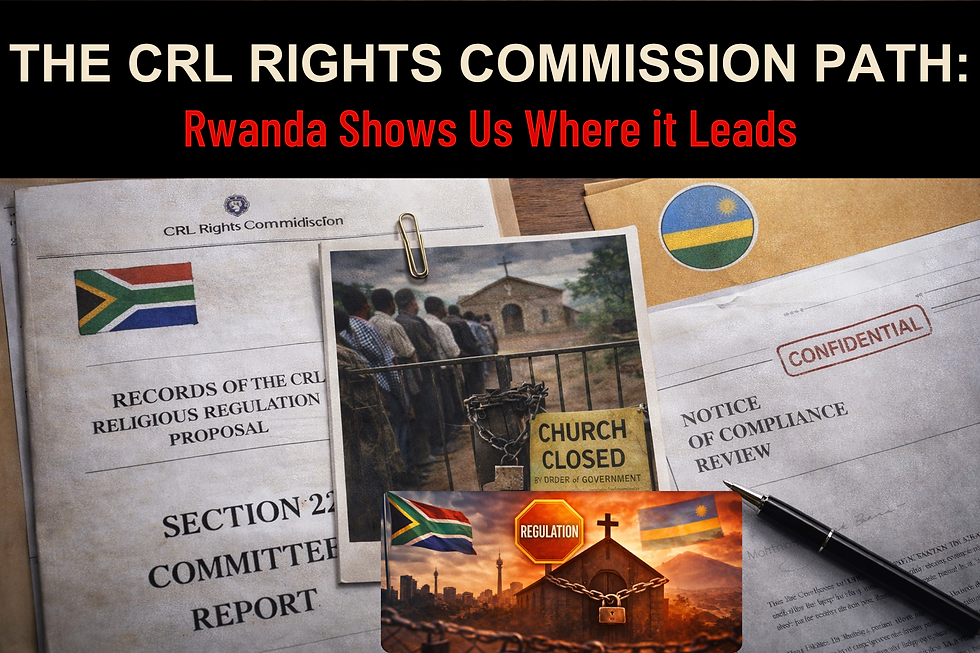The Hidden Cost of Regulating Religion in South Africa
- SACD MEDIA

- Sep 8, 2025
- 2 min read
At the Pastors’ & Leaders Breakfast Meeting held on 25 August 2025, Michael Swain addressed a deeply concerning proposal from the CRL Rights Commission: the registration and regulation of churches and religious practitioners in South Africa.
His message was simple yet sobering—this plan is unconstitutional, unnecessary, unworkable, and unaffordable.
Unanswered Questions
Swain asked the questions that many pastors and leaders are also asking:
Who will monitor compliance under such a system?
What happens if a church or pastor breaks the rules?
Will there be fines? Jail time?
How exactly will “self-regulation” through the state even function?
These questions remain unanswered. Yet, the CRL claims that the new legislation will “help” with self-regulation.
“Don’t believe that for a moment,” Swain warned.
The True Cost of Regulation
The scale of the proposed system is staggering. South Africa has around 100,000 religious organisations. If every one of them had to be vetted and registered, the administrative burden would be massive.
Now add an estimated 400,000 religious practitioners who would also require registration, and suddenly the scale becomes impossible to manage without an army of bureaucrats.
Swain presented a cost analysis:
Initial setup costs: ± R750 million
Annual running costs: R250–R300 million
Staffing required: 200–300 people across provinces
By contrast, the CRL’s current annual budget is only R50 million.
So how would this ambitious project be funded?
“From your tithes and offerings,” Swain said bluntly.
If implemented, churches could find themselves indirectly funding a R2.5 billion regulatory machine, money that should instead be feeding the hungry, caring for the poor, and preaching the gospel.

Parliament’s Role—and the Danger Ahead
When asked where the money would come from, the CRL Chairperson reportedly replied: “Parliament will decide.”
But in a country already struggling with limited resources, collapsing state institutions, and fiscal crises, there is no extra “slush fund” waiting to be used. The inevitable outcome is that the financial burden will fall squarely on the Church itself.
Why This Matters
Swain concluded with a stark warning:
The proposal is unconstitutional because it violates freedom of religion.
It is unnecessary, since churches already practice forms of accountability and self-governance.
It is unworkable, given the scale and complexity.
And most importantly, it is unaffordable, draining vital resources from the very communities that churches are meant to serve.
SACD’s Position
The South African Church Defenders (SACD) remains firm:
State regulation of religion is not only a bad idea—it is a dangerous one.
As Michael Swain put it:
“Do you think it’s a good use of tithes and offerings to take two and a half billion and hand it to the state?”
The Church must remain free to serve, free to worship, and free to preach the gospel without state interference.
For Christ. For Freedom. For The Church.



Comments